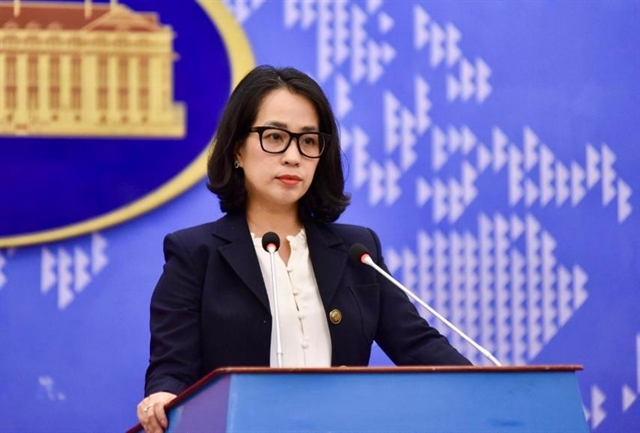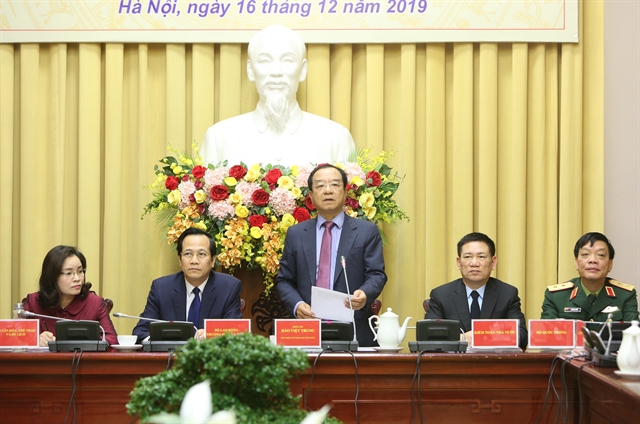 Politics & Law
Politics & Law


|
| Chairman of the Presidential Office Đào Việt Trung chaired the press briefing held on Monday to announce the promulgation of 11 new laws that were adopted by National Assembly during their last meeting in November. — VNA/VNS Photo Dương Giang |
HÀ NỘI — The Office of the President held a press conference on Monday to announce President Nguyễn Phú Trọng’s order on promulgating 11 new laws that were adopted by the National Assembly during its last sitting in November.
The revised Labour Code brings to the table many significant changes that aim to ensure Việt Nam’s labour standards are in line with international norms as the country has become part of several progressive free trade deals with stringent labour requirements.
The law provides a roadmap for raising retirement age from the current age of 60 for males and 55 for females to 62 and 60 for males and females by 2028 and 2035, respectively.
According to this roadmap, starting from 2021, each year, male and female workers’ retirement age will be increased by four and three months, respectively.
The labour code also extends the overtime cap from 30 hours to 40 hours a month, and lengthens the National Day (September 2) holiday by one day.
Another key change is the legalisation of independent workers’ representative groups that are not affiliated with the State-run General Federation of Labour, a move commended by the International Labour Organisation (ILO).
The law is expected to take effect on January 1, 2021.
Exit and entry
The amended Law on foreigners' entry into, exit from, transit through and residence in Việt Nam stipulates the issuance of e-visas for foreigners entering Việt Nam and visa waivers for foreigners staying in coastal economic zones for less than 30 days to boost socio-economic development.
The amendments are set to take place in July next year.
The revised Law on entry and exit of Vietnamese citizens, which will also take effect in July next year, aims to bring more convenience to passport holders.
For example, applicants for passports at immigration departments will merely have to fill out an application form rather than providing various documents. Second-time passport applicants can choose the place to receive the passports once issued, and citizens older than 14 can choose to have the new type of passports with embedded chips that work with automated self-service barriers in modern airports.
Other remaining freshly adopted laws include the law amending and supplementing some articles of the Law on Cadres and Civil Servants and the Law on Public Employees; the Law on Military Reserve Force; the Law on Militia and Self-Defence Forces; the law amending and supplementing some articles of the Law on Organisation of the Government and the Law on Organisation of the Local Government; the Law on Library; the law amending and supplementing some articles of the Law on Management and Use of Weapons, Explosives and Supporting Tools; the law amending and supplementing some articles of the Law on State Audit; and the Law on Securities. — VNS

.jpg)


